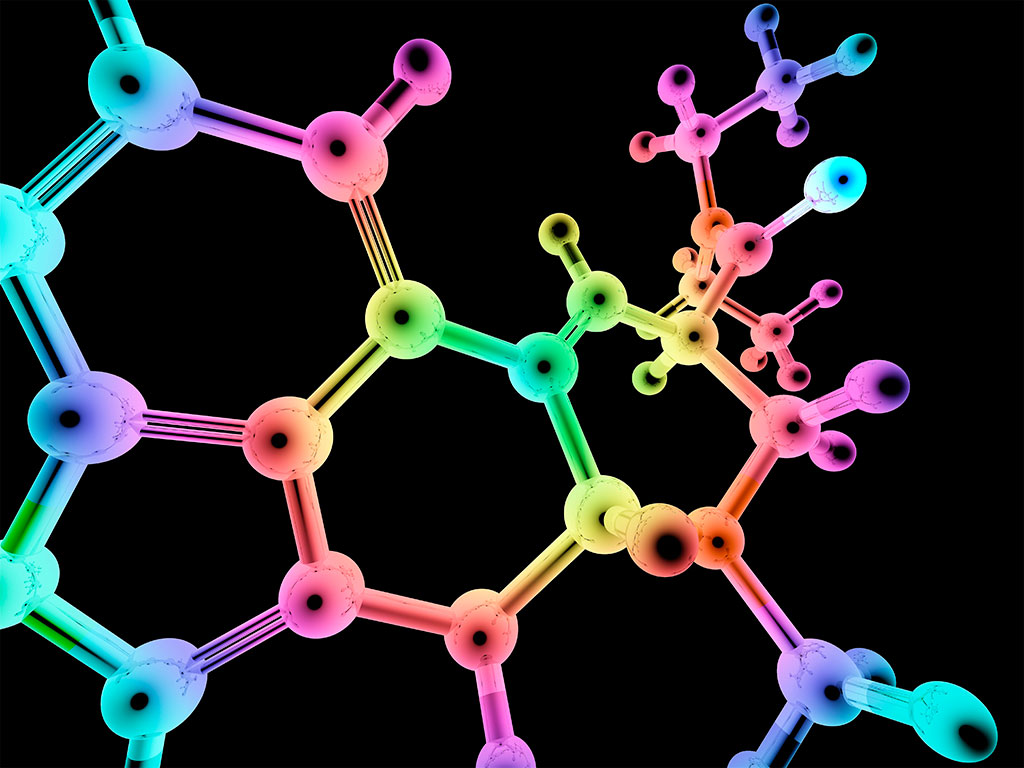Groundbreaking LSD study opens up new medical and philosophical applications
A neurological study by a team at Imperial College London has uncovered previously unknown specifics of how LSD affects the brain, and how it could be used to treat psychiatric conditions and widen our understanding of the mystery of consciousness

A graphic representation of an LSD molecule. The Imperial College London study could lead to mainstream medical use of the drug
Lysergic acid diethylamide, more commonly known by the abbreviated name LSD, gained massive popularity as a recreational drug in the 60s. Among anecdotal reports of ‘bad trips’ and users feeling like they could fly, a common experiential thread was a sense of heightened creativity and a feeling of ‘oneness’ with the wider universe.
Such claims are routinely dismissed, either as hippy nonsense or unworthy of further exploration due to the seriousness of the drug’s dangers, particularly the regularly cited link between LSD and schizophrenia.
Now, however, a new study, published in the journal European Neuropsychopharmacology, could completely overhaul the drug’s image, explaining the recreational experience in scientific terms and demonstrating the usefulness of controlled doses in the treatment of psychiatric conditions. MRI scans of the brains of volunteers were taken by Professor David Nutt and his team – some of the volunteers were given LSD, others a placebo. The scans revealed a drastic change in the internal brain communications of the former group.
Effectively, the drug caused the barriers between three segregated networks of the brain – those relating to paying current attention, problem solving, and reflecting on the past and future – to relax. As The Guardian reported: “The impact of LSD was to diminish connections within each of these networks, relaxing the bonds that kept them intact and distinct, while increasing the cross-talk among them. In other words, the normal etiquette of the brain requires segregation among networks that have different functions, and that etiquette was blown to bits.”
The results are hugely significant – Professor Nutt clamed that “this is to neuroscience what the Higgs boson was to particle physics”, according to The Guardian.
Effectively, the drug caused the barriers between three segregated networks of the brain – those relating to paying current attention, problem solving, and reflecting on the past and future – to relax
In step with the widely known effects of LSD, the non-placebo volunteers noted a significant amount of ‘ego dissolution’, i.e. a loss of individuality and sense of the unique self, often described anecdotally as the aforementioned sense of oneness with existence. That this sensation could be explained by a relaxation of the brain’s natural segregations is a huge step forward in our understanding of human consciousness, with applications both medical and philosophical.
Indeed, the research team noted that controlled use of the effect could help knock the brain out of the cyclical thought patterns that characterise issues such as depression. PhD student Mendel Kaelen observed: “A major focus for future research is how we can use the knowledge…to develop more effective therapeutic approaches for treatments such as depression; for example, music-listening and LSD may be a powerful therapeutic combination if provided in the right way”, according to Imperial College London.













